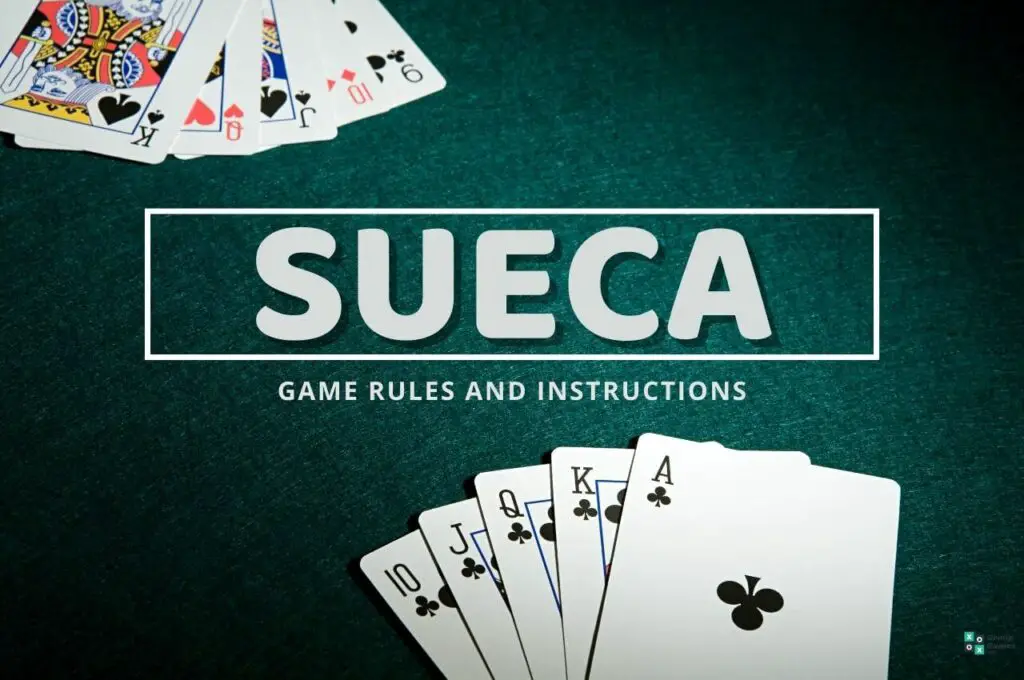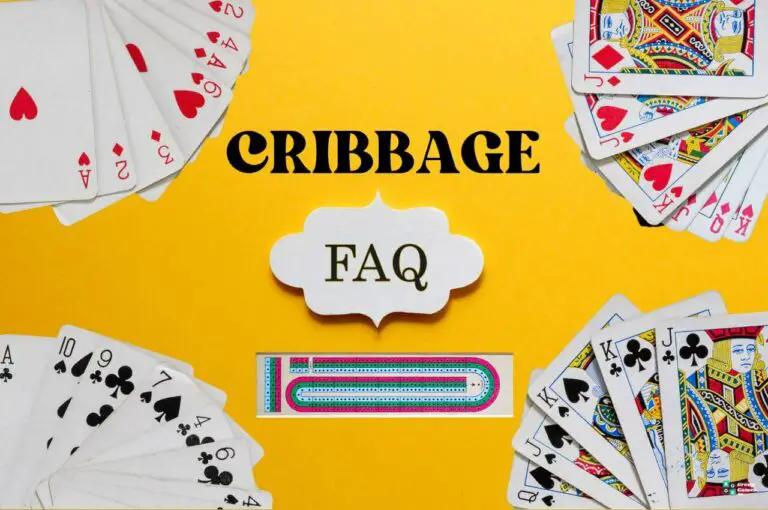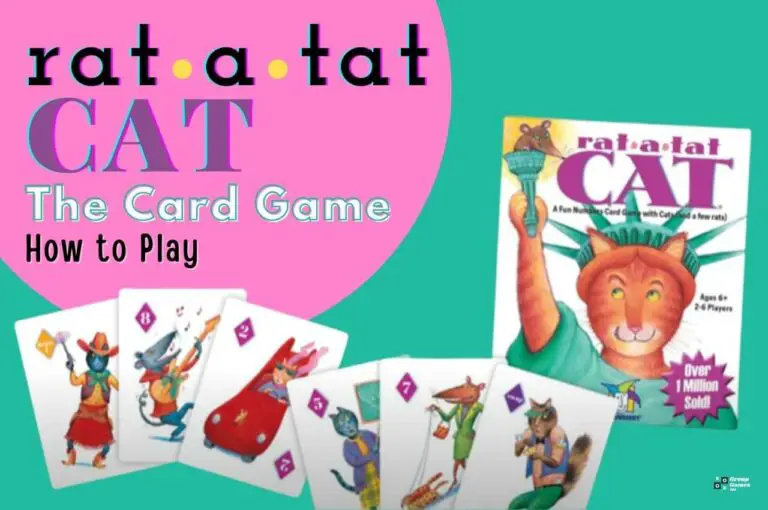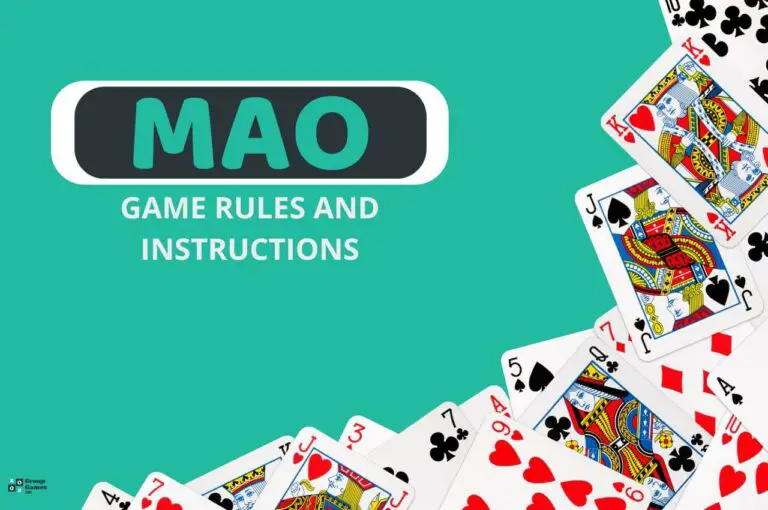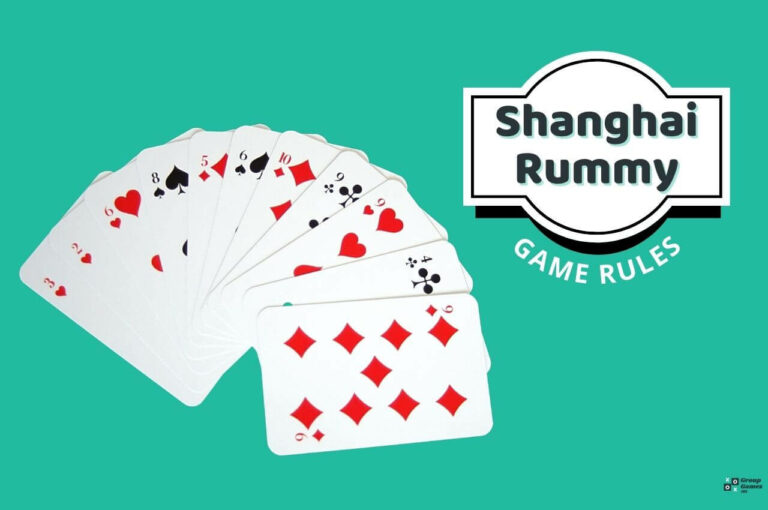Are you looking for a fun activity for two couples or a group of four friends? Sueca is an original card game you have to try. My Sueca rules guide explains it in detail.
Sueca is a little township not far from the Spanish coastal city of Valencia. However, the game of the same name does not originate in Spain but in neighboring Portugal.
Sueca is a card game played mainly in Portugal, Brazil, Angola, and a few other places with a shared history of Portuguese colonies.
But the game is now quite popular in English-speaking countries, too, sometimes being likened to Euchre, although it is nowhere as complex (see Euchre rules for comparison).
Though this trick-taking card game is pretty unique, if I had to compare it to some other game, I’d say it has much more in common with Briscola (see Briscola rules).
This Sueca rules guide will cover the following:
- What is Sueca?
- What you’ll need to play Sueca
- Sueca Rules
- How to play Sueca (video tutorial)
- FAQs
- Other similar games to Sueca (our guides)
Read on to find out how to play Sueca in the following article.
What is Sueca?
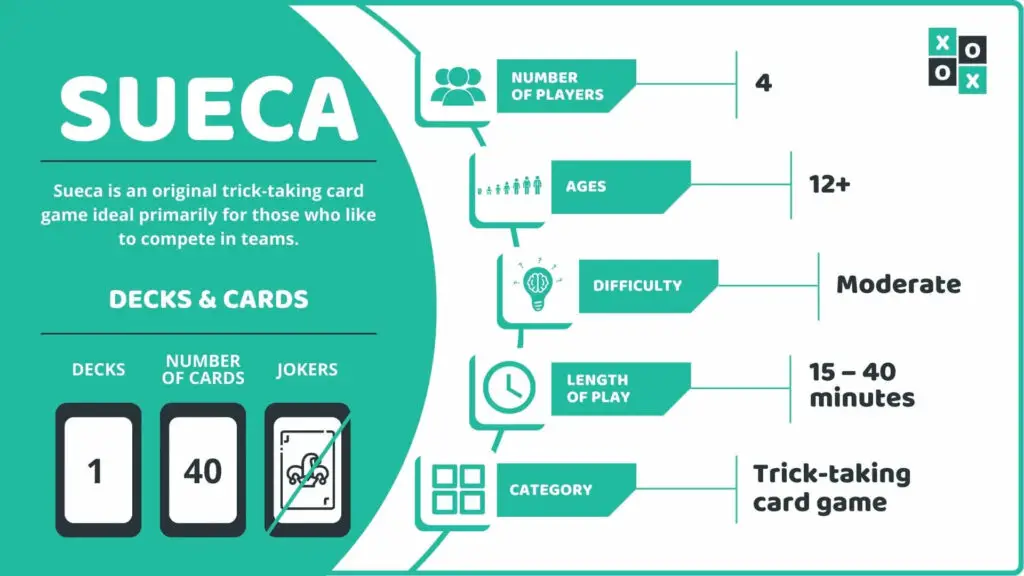
In most regards, Sueca is a classic trick-taking card game, so if you’re familiar with some other games of this type, it will probably feel pretty familiar.
However, the game adds a few new hurdles and unusual rules twists, making it an unpredictable and thrilling match.
Number of Players: 4 players (two opposing teams of two players)
Ages: 12+
Difficulty: Moderate
Length of Play: 15 – 40 minutes
Category: Trick-taking card game
Similar to: Briscola, Einwerfen, Bisca
Main Objective: Take the tricks and earn more points than your opponents to win this game.
Why We Love It: Sueca is an original trick-taking card game ideal primarily for those who like to compete in teams.
What You’ll Need to Play Sueca
The game of Sueca requires only a single 52-card deck. However, you will not use the entire deck in the game. I will explain shortly what cards have to be sorted out.
Sueca Rules and Instructions
Before you start playing Sueca, it’s important to divide the players into two teams. Aim to create two equally strong teams to make the game as fair as possible – it’s much more fun!
The teammates will sit across the table from each other.
Now it’s time to set up the cards. Cards should always be sorted, shuffled, and dealt by a dealer.
Use a random method to assign the role of the dealer to a specific player. With my friends, we usually draw one card from the deck. The highest-ranking card owner becomes a dealer.
Starting the Game
Sueca is played with a deck of 40 cards. You create it by sorting out all the tens, nines, and eights from a standard 52-card deck.
Cards are also ranked in quite an unusual way: Ace is the highest one, followed by seven, King, Jack, Queen, six, five, four, three, and two.
Once the dealer shuffles the cards, the player sitting to his left cuts the deck. Next, the dealer gives ten cards to each player – all at once.
Flip the bottom card dealt to the dealer over and show it to all the players. Its suit will be a trump suit for the upcoming round.
Now you are ready to start playing the game.
How to Play Sueca
Like all the other trick-taking card games, Sueca is played over multiple tricks.
- To complete a trick, each player discards one card (in an anti-clockwise direction, starting with the one sitting to the dealer’s right) face-up to the center of the table.
- The first player leads the trick with the card of their choice. Subsequently, all other players should follow the leading suit whenever possible.
- The player with the highest-ranking card in the lead suit or the highest-ranking trump card wins the trick.
- The winner of the trick then leads to a new trick.
The players aim to win the most valuable cards in the tricks (see the Cards Value chart below) to earn as many points as possible for their teams.
They can discard a random card if they don’t want to waste a trump on a low-value trick.
Cards Value
Each card has its value in the game of Sueca (although some are, technically speaking, pretty much worthless).
It goes as follows:
- Ace = 11 points
- Seven = 10 points
- King = 4 points
- Jack = 3 points
- Queen = 2 points
- 2, 3, 4, 5, 6 = 0 points
For each won trick, the team scores a number of points corresponding to the overall value of the included cards.
Sueca Scoring
The ultimate goal of both teams in the game is to earn four game points faster than their opponents. The team that accomplishes this wins the game.
To win a single game point, the team must score 60+ standard points in a round. These points are counted after each round by combining the tricks won by both team members.
To win two game points, the team must score 91+ standard points in the round.
To win all four game points, the team must win all the tricks in the round.
How to Play Sueca – Video Tutorials
Sueca Frequently Asked Questions
What is Sueca in Portuguese?
Sueca means “Swedish female” in Portuguese. Nevertheless, it remains a mystery why the card game bears this name.
What happens if both teams score 60+ points in a round of Sueca?
In case of a tie, the game point is not awarded to any of the teams. However, the winner of the next round will automatically earn two points instead of a single one.
Can you win Sueca by scoring 120 points?
Yes, there is an optional rule that the team can win the entire game if they score 120 points in a single round. Discuss it upfront if you want to include this rule in your gameplay.
Other Similar Games to Sueca (Our Guides)
If you enjoy Sueca, there’s a good chance you will also like some similar trick-taking card games. Check some of them out in our guides to the following Sueca alternatives:
- Briscola rules
- Sheepshead rules
- Tarneeb rules
- 99 card game rules
- Wizard rules
- Pitch card game rules
- Five Crowns rules
- Einwerfen rules (guide coming soon)
- Bisca rules (guide coming soon)

